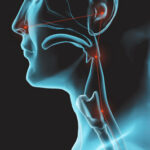Hypothyroidism affects millions worldwide, manifesting as fatigue, weight gain, dry skin, hair loss, and mood disturbances. While medical science has mapped its biological mechanisms with precision, a deeper conversation about the condition reveals layers that numbers and prescriptions alone cannot address.
The Medical Framework
The thyroid gland, when underactive, fails to produce sufficient hormones to maintain normal metabolic function. The established causes are well-documented: Hashimoto’s thyroiditis leads the list, where the immune system mistakenly targets thyroid tissue. Iodine imbalance (either too little or too much) disrupts hormone synthesis. Certain medications, including lithium and amiodarone, interfere with thyroid function. Surgical removal or radiation therapy for thyroid conditions can create permanent deficiency. Genetic predisposition combined with environmental factors completes the clinical picture.
Levothyroxine, a synthetic thyroid hormone, effectively restores biochemical balance in most patients. Laboratory values normalize. Yet something curious persists: many treated patients continue experiencing fatigue, anxiety, and diminished vitality despite optimal hormone levels.
Beyond the Biochemical
This gap between corrected lab values and persistent symptoms invites exploration beyond conventional boundaries.
The thyroid occupies a unique position anatomically and symbolically. It sits at the throat, the center of communication and self-expression. Practitioners working with mind-body connections observe patterns: hypothyroidism frequently accompanies difficulty with authentic expression, suppressed emotions, or chronic self-silencing. Whether this represents correlation or something deeper remains debated, but the pattern appears consistently enough to warrant attention.
This raises an uncomfortable question for materialist medicine: can a disease be both a biochemical malfunction and a meaningful pattern? Can the thyroid’s failure to produce adequate hormone also reflect a life where inner vitality has been suppressed, where authentic voice has been systematically diminished?
An Integrated Approach
The tension between these perspectives is unnecessary. Medical treatment addresses the immediate biological crisis. Hormone replacement corrects the deficiency and prevents serious complications. This remains essential and irreplaceable.
But if healing means more than symptom management, the conversation must expand. Addressing chronic stress, examining patterns of emotional suppression, creating space for authentic expression, and reconnecting with sources of personal vitality: these complement medical treatment rather than competing with it.
The patients who report the most complete recovery often describe transformations that extend beyond normalized TSH levels. They speak of finding their voice again, whether literally through singing or speaking up, or metaphorically through creative work, boundary-setting, or honest conversations they’d long avoided.
A Clinical Observation
In practice, the most intriguing cases involve patients whose numbers stabilize but symptoms persist until something shifts in how they inhabit their lives. One patient’s energy returned when she finally addressed a decades old family conflict. Another found relief through regular journaling, simply giving voice to thoughts he’d never spoken aloud.
These outcomes resist easy categorization. They don’t fit neatly into clinical trials. Yet they occur with enough frequency to suggest that the thyroid’s biological function and a person’s capacity for authentic self-expression may be more intimately connected than current models acknowledge.
Conclusion
Hypothyroidism exists at an intersection. It is unquestionably a medical condition requiring proper diagnosis and treatment. It is also, potentially, a manifestation of suppressed vitality, stifled expression, and accumulated silence.
The most complete healing honors both dimensions: stabilizing the biochemistry while simultaneously creating conditions for the person’s full voice to emerge. This isn’t about choosing between science and meaning; it’s about recognizing that both are true simultaneously.
When someone’s thyroid slows down, we can ask: what else has slowed down? What hasn’t been said? What vitality has been suppressed? These questions don’t replace medical care. They deepen it.
True healing may require both the precision of endocrinology and the wisdom of listening: to the body, to the emotions, to the life that the body is trying to live.




